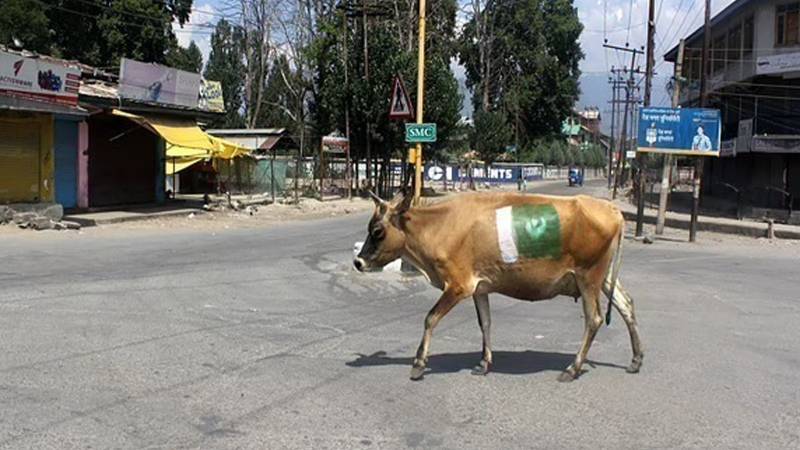
Animal Farm written by George Orwell in 1945, stands as a remarkable political satire to the date, that maintains its relevance across diverse political contexts and epochs. Surprisingly, Orwell's magnum opus faced rejection from numerous British publishers (who were at that time an ally of Soviet Union against Nazi Germany) due to its stark parallels with the political situation in the Soviet Union. Nonetheless, we can find its relevance to any governing system, from modest communal setups to the global political landscape.
It is said that new neural connections are forged in your brain, when you learn something new. I read Animal Farm many years ago but even today, my mind subconsciously associates the characters of the book to the people in my surroundings.
I remember, at one of the Universities I taught, whenever any new management would take over, one of my disheartened colleagues from previous governance system, used to start working with zeal and zest, embracing their promises and hoping for a brighter future of the institution.
I could not help but think to myself, 'Oh, dear Boxer, your optimism will kill you one day.' Nevertheless, optimism and ability to place trust in another human, make us truly humans.
I also encountered a few 'sheep' who mindlessly echoed whatever they were instructed to say, sometimes offering flattering comments on even the most trivial achievements of their bosses.
There also existed characters like Mollie, who cared nothing other than their personal comfort and prioritised their own interests above all.
Intellectuals resembling Benjamin, the donkey, assumed the role of bystanders even in the direst circumstances when their wisdom was most needed.
And, of course, the power-hungry 'pigs,' the traitors who not only betrayed the collective cause of the community but unapologetically justified their actions in the name of greater good. I am sure, if you have read the book, you’ll also find its characters, walking and talking around you.
However, the story is not merely a collection of characters; it offers a comprehensive understanding of how complexities of human psychology intertwine with the realm of political dynamics.
In different eras of Pakistan's history, we have witnessed a few inspiring figures in politics like Old Major, who regale us with fascinating stories that how Pakistan was once a prosperous country.
However, those (in the form of global forces or corrupt politicians) have made us slaves and crushed all our potential to becoming rich and free (drawing upon the adjectives used in Major's speech in first chapter of animal farm).
People often buy into this emotional appeal, placing faith in their claims, all the while forgetting that the true threat may reside within and it can have four legs (referring to the slogan espoused by the sheep “four legs good, two legs bad”).
In history of Pakistan, many times the inside forces have weakened Pakistan by suppressing people choices with power they gathered over the years. Similar to Napoleon, who secretly raised nine puppies to quell dissent with physical force instead of engaging in the debate and arguing through reasoning.
The first order Napoleon passed after the coup, was to end the weekly Sunday meeting of animals. Dictatorial powers fear nothing more than the awakening of the collective consciousness of society, hence the initial move of any dictator is to silence the media or secure its loyalty through various means. Every Napoleon requires a mouthpiece like Squealer, who justifies the unlawful action of their leader among the masses.
Pakistani despots have consistently employed political stooges to wash their dirty laundries. These political stooges sell beautiful lies to public, such as ‘enlightened moderation’, the creation of ideal states and ‘saving the country in difficult economic situation.’
Of course, ruling class needs luxuries, as Squealer put it, they deserve some comfort because of all the brainwork leaders have to do for animal farm. Consequently, they receive the lion's share of the budget, reside in spacious housing societies, drive luxury vehicles, and hold a special status in the society. Those who dare to raise their voices are often harshly punished, much like the hens who received the death penalty for attempting to protect their eggs.
Over time, fear of the growling dogs suppresses all dissent, even when tyranny crosses all bounds, leaving the “petite bourgeoisie” (lower-middle class) unable to pay utility bills and the impoverished proletariats struggling to feed their families. In those times, people remember the one commandment essential to survive in the utopia: “All animals are equal, but some are more equal than others.”
Through all the allegory, Orwell imparts numerous underlying messages to his readers. As a nation, we must remain vigilant against false promises of revolution. We should watch out for the hidden hands behind manipulation, propagating lies, and wielding threats of destruction. It is a cautionary tale against blind allegiance to leaders and underscores the importance of vigilance, critical thinking, literacy, vitality, and a steadfast commitment to justice to prevent the abuse of power.
In the original foreword of Animal Farm, Orwell admonished readers to be wary of falling for slogans advocating liberty, for true liberty entails nothing more than the right to tell people what they don’t want to hear. And it is mostly the liberals who fear liberty and intellectuals who want to do dirt on the intellect so be prudent in your choice of whom to trust.
I’ll conclude this article with an innocent admission of Ghalib that we all could resonate to as a nation:
چلتا ہوں تھوڑی دُور ہر اک تیز رَو کے ساتھ
پہچانتا نہیں ہُوں ابھی راہبر کو مَیں
― غالب
I journey a short distance with every fast-paced caravan, I am yet to recognize the true guide
- Ghalib

